Cycling, whether for competitive sports or leisure, requires optimal nutrition to support performance and recovery. Understanding the role of macronutrients and micronutrients in energy production can enhance a cyclist’s endurance, speed, and overall health.
- The Cyclist’s Plate: A Balanced Meal Plan
- Recipe: Oatmeal with Berries and Nuts
- Hydration: A Critical Aspect
- Recipe: Homemade Electrolyte Drink
- Recovery Foods for Cyclists
- Recipe: Protein-Packed Quinoa Salad
- Supplements: Boosting the Performance
- Recipe: Protein-Packed Smoothie
- Personalizing Your Nutrition Plan
- Recipe: Custom Energy Balls
The Cyclist’s Plate: A Balanced Meal Plan
A cyclist’s diet should be a balanced blend of carbohydrates, proteins, and fats. Carbohydrates serve as the primary energy source, proteins assist in muscle repair, and fats contribute to long-lasting energy.
Recipe: Oatmeal with Berries and Nuts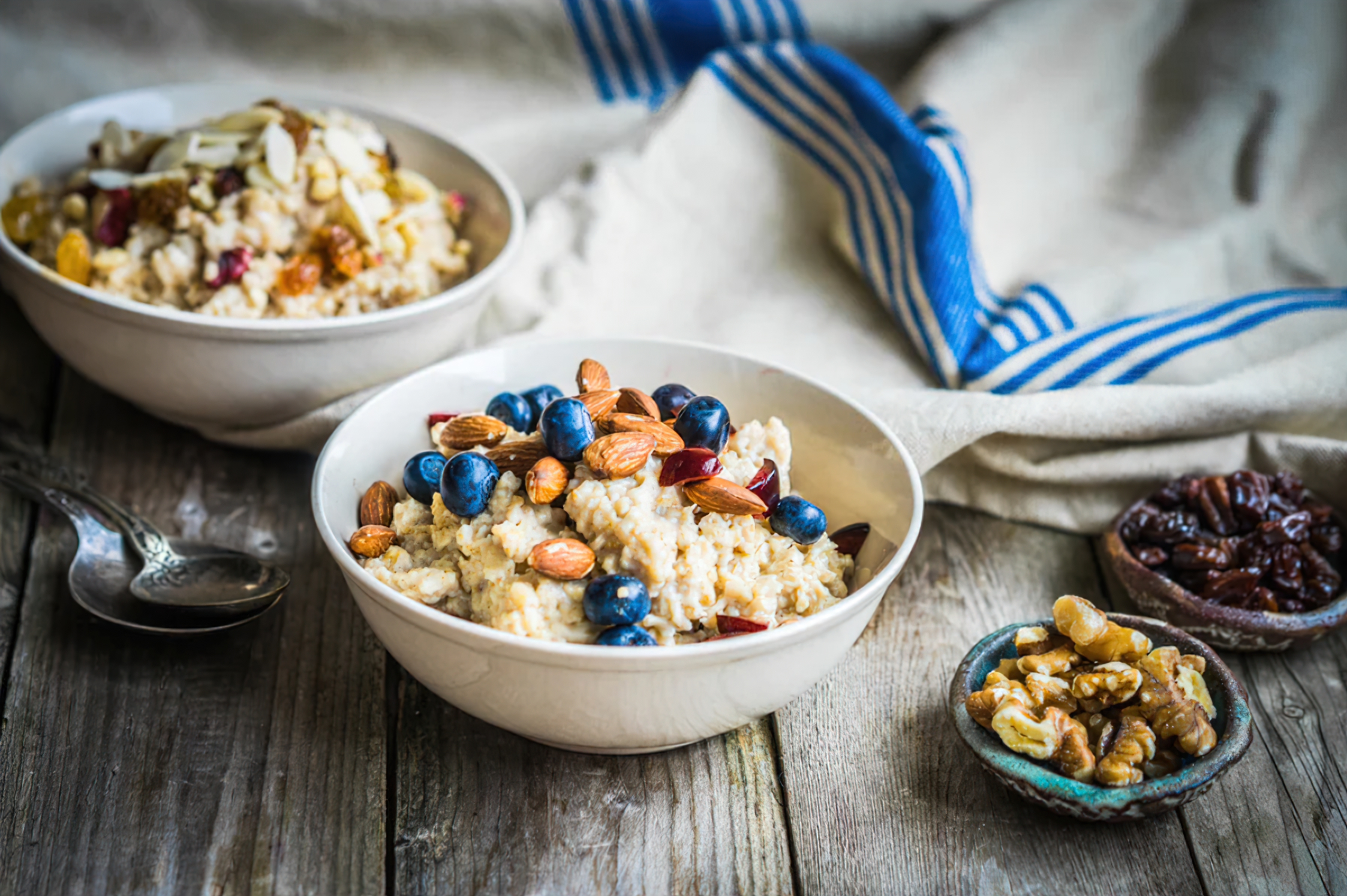
Start your day with a bowl of energy-packed oatmeal. Here’s a simple recipe:
Ingredients:
- 1/2 cup of oats
- 1 cup of almond milk
- 1/2 cup of mixed berries
- A handful of nuts
- A dash of honey for sweetness
Directions:
- Heat the almond milk in a saucepan and add the oats.
- Simmer until the oats absorb the milk.
- Top with mixed berries, nuts, and a drizzle of honey.
This meal provides a mix of carbs, protein, and fats perfect for a cyclist’s breakfast.
Hydration: A Critical Aspect
Keeping the body hydrated is crucial for cyclists, as water is key to maintaining body temperature and providing essential minerals.
Recipe: Homemade Electrolyte Drink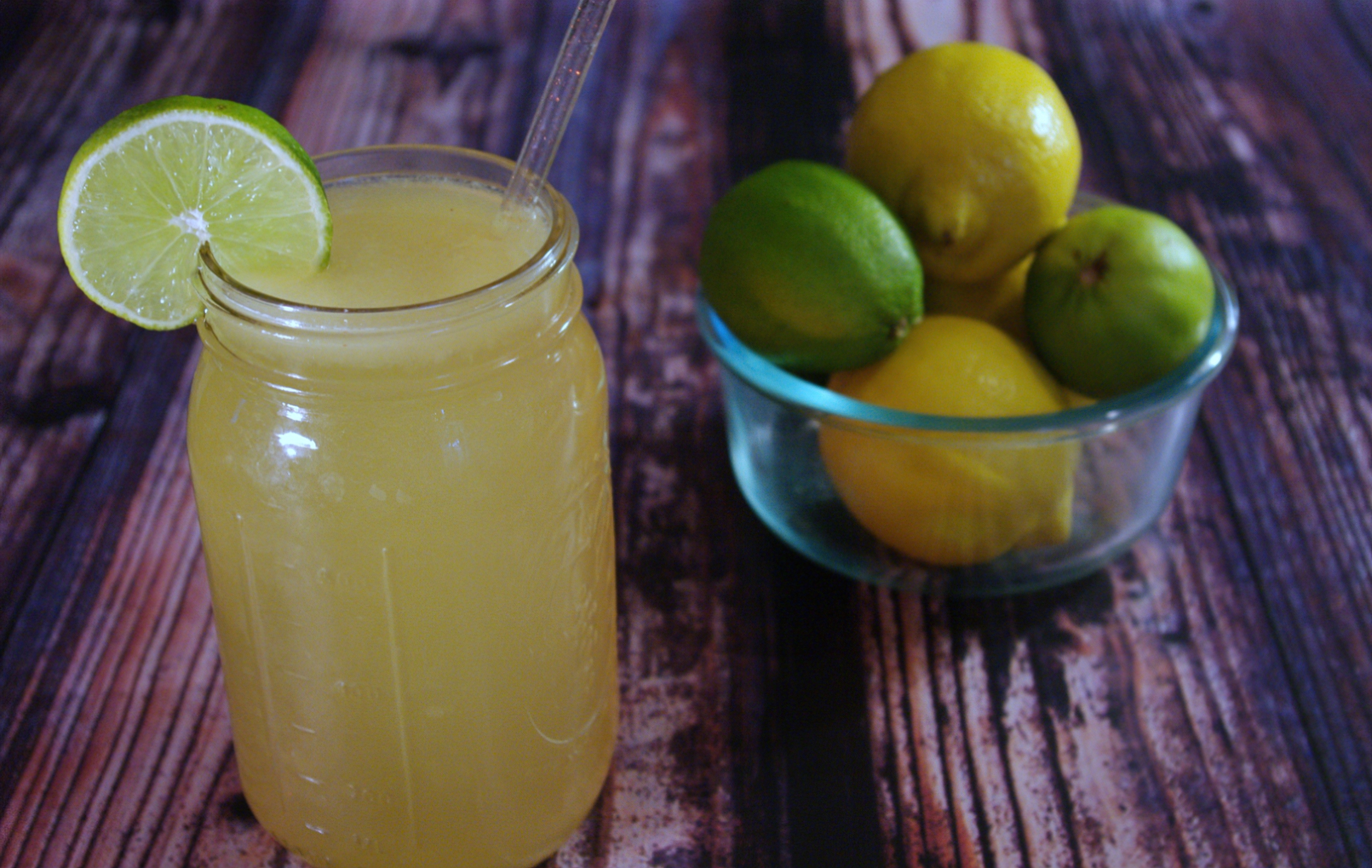
Try this homemade electrolyte drink to stay hydrated:
Ingredients:
- 1 liter of water
- Juice of 1 lemon
- 1/4 teaspoon of salt
- 2 tablespoons of honey
Directions:
- Mix all ingredients until fully combined.
- Refrigerate and consume during your ride.
This drink provides essential electrolytes lost through sweating.
Recovery Foods for Cyclists
Post-ride recovery is essential to repair muscles and replenish glycogen stores. This is where protein and carbs come into play.
Recipe: Protein-Packed Quinoa Salad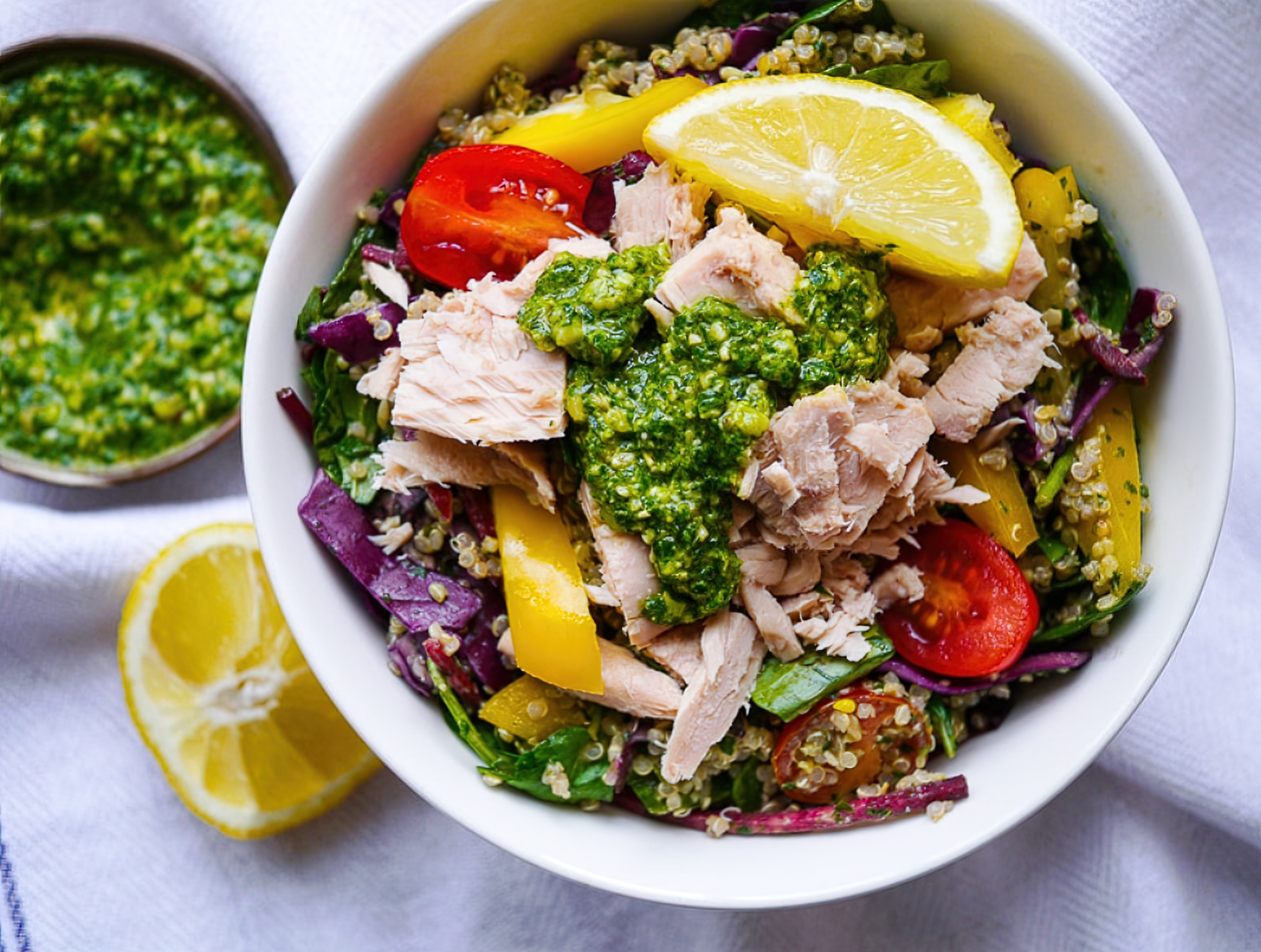
Here’s a delicious recovery meal:
Ingredients:
- 1 cup of cooked quinoa
- 1 can of chickpeas
- Mixed vegetables (carrots, cucumbers, bell peppers)
- Olive oil, lemon juice, salt, and pepper for dressing
Directions:
- Combine all ingredients in a large bowl.
- Toss with olive oil, lemon juice, salt, and pepper.
Quinoa and chickpeas provide a plant-based protein source, while the veggies offer necessary micronutrients.
Supplements: Boosting the Performance
Apart from the balanced diet, supplements can further enhance performance, recovery, and overall well-being. However, it is essential to consult with a nutritionist or a healthcare provider before starting any supplement regime.
Recipe: Protein-Packed Smoothie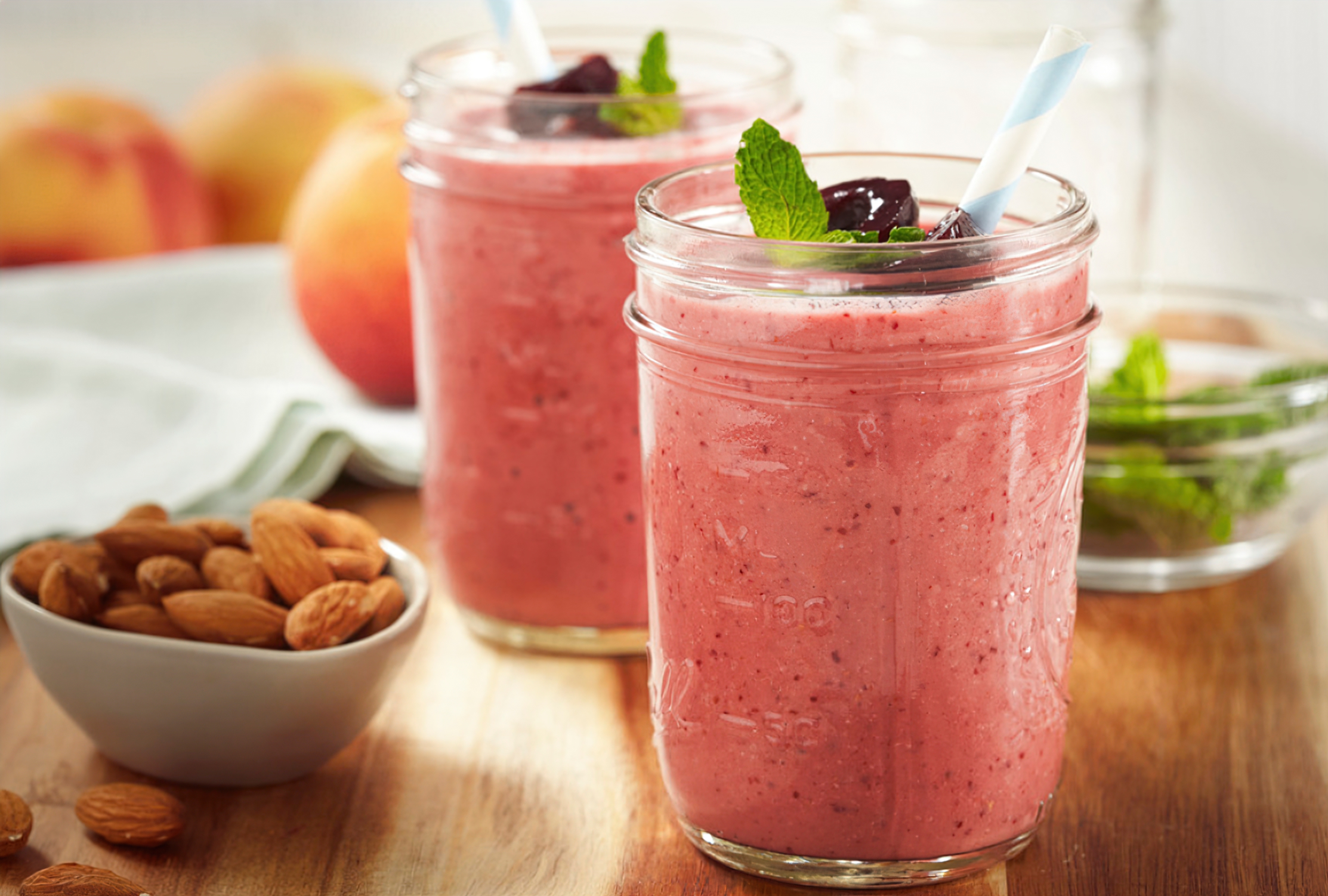
A quick and easy way to consume these supplements is through a smoothie. Here is a high-protein smoothie recipe for post-ride recovery:
Ingredients:
- 1 scoop of protein powder (your choice of flavor)
- 1 ripe banana
- 1 cup of almond milk
- 1 tablespoon of chia seeds
- Ice cubes
Directions:
- Add all ingredients into a blender.
- Blend until smooth.
This smoothie is not only packed with protein but also provides necessary dietary fibers and omega-3 fatty acids from chia seeds.
Personalizing Your Nutrition Plan
Each cyclist may have different nutritional needs, depending on their body type, intensity, and duration of the rides, and individual goals. It’s always a good idea to consult with a sports nutritionist to personalize the diet and supplement plans. Remember, nutrition is a vital part of the training program, so take the time to understand and adapt it to your specific needs.
Recipe: Custom Energy Balls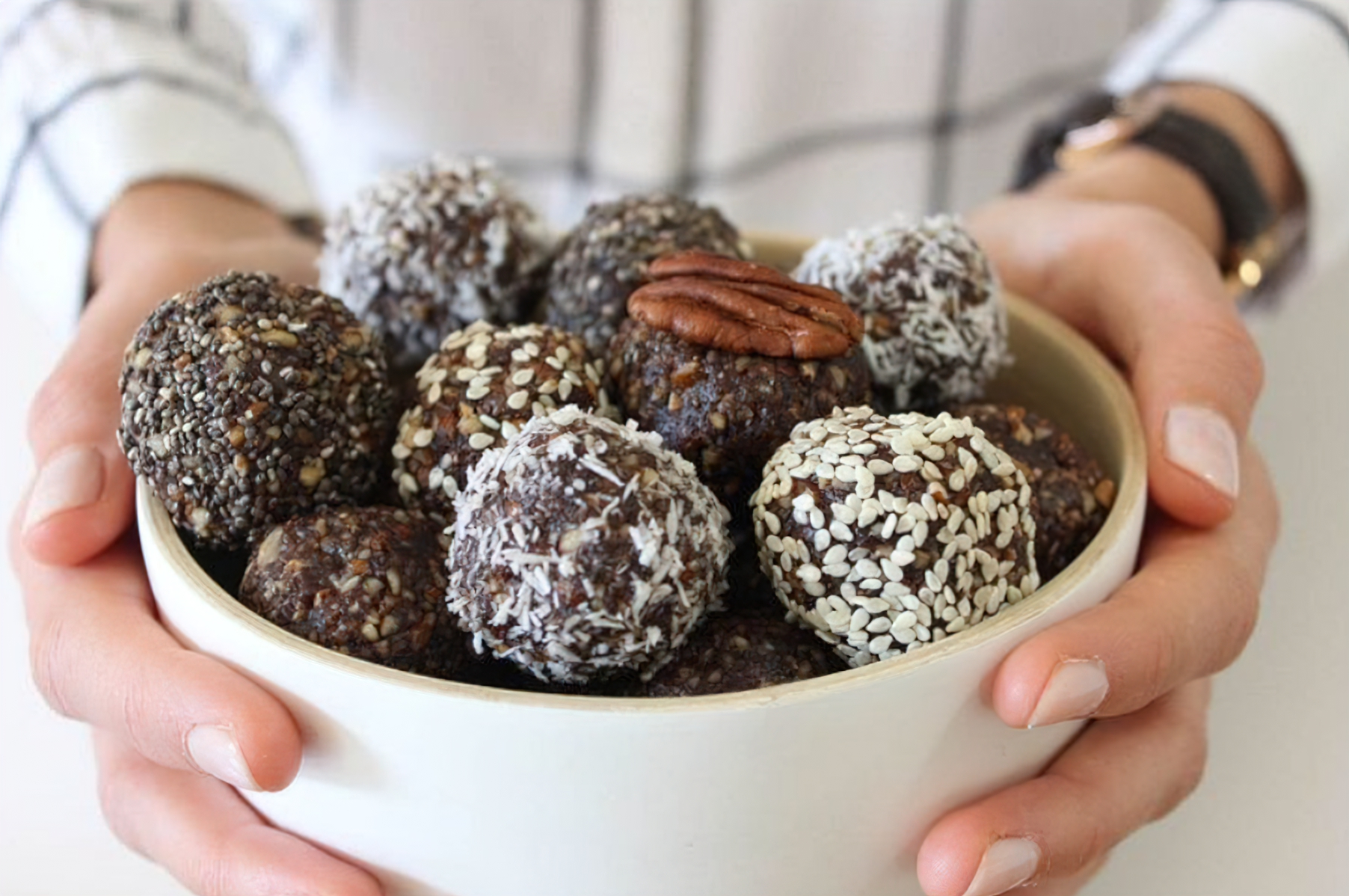
Here’s a customizable recipe for energy balls, perfect for on-the-go snacks during long rides:
Ingredients:
- 1 cup of dry ingredients (nuts, oats, etc.)
- 1/4 cup of binder (honey, maple syrup, etc.)
- 1/4 cup of add-ins (dried fruit, chocolate chips, etc.)
Directions:
- Mix all ingredients in a bowl.
- Form into small balls and refrigerate.
These energy balls can be customized according to personal preferences and nutritional needs.
In conclusion, nutrition plays a key role in cycling performance. By eating a balanced diet, staying hydrated, and taking appropriate supplements, cyclists can optimize their performance and recovery. The recipes provided are easy to make and packed with the necessary nutrients for cyclists. Remember, everyone is unique, so adapt these guidelines to meet your individual needs and preferences. Enjoy the ride and fuel your body right!